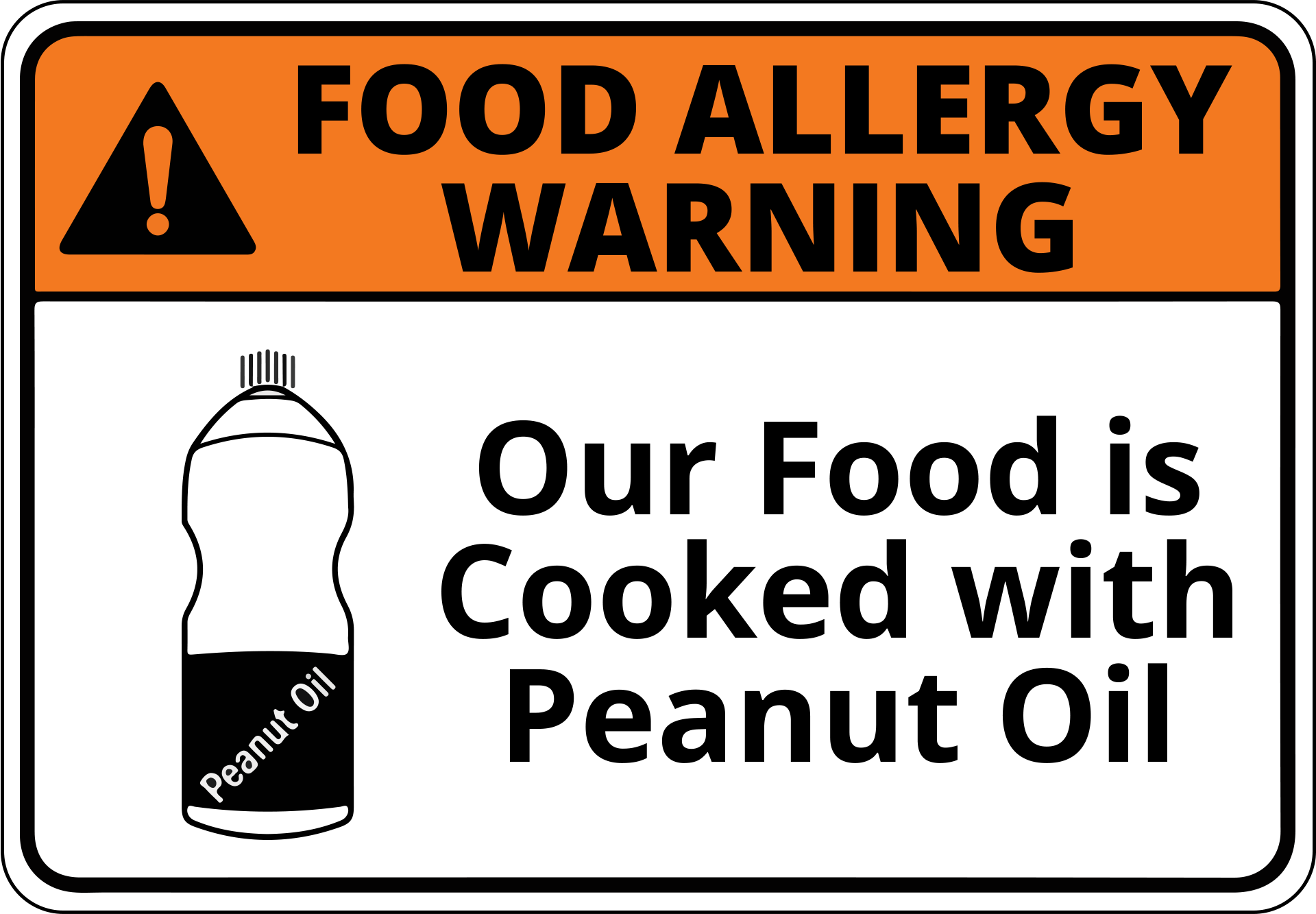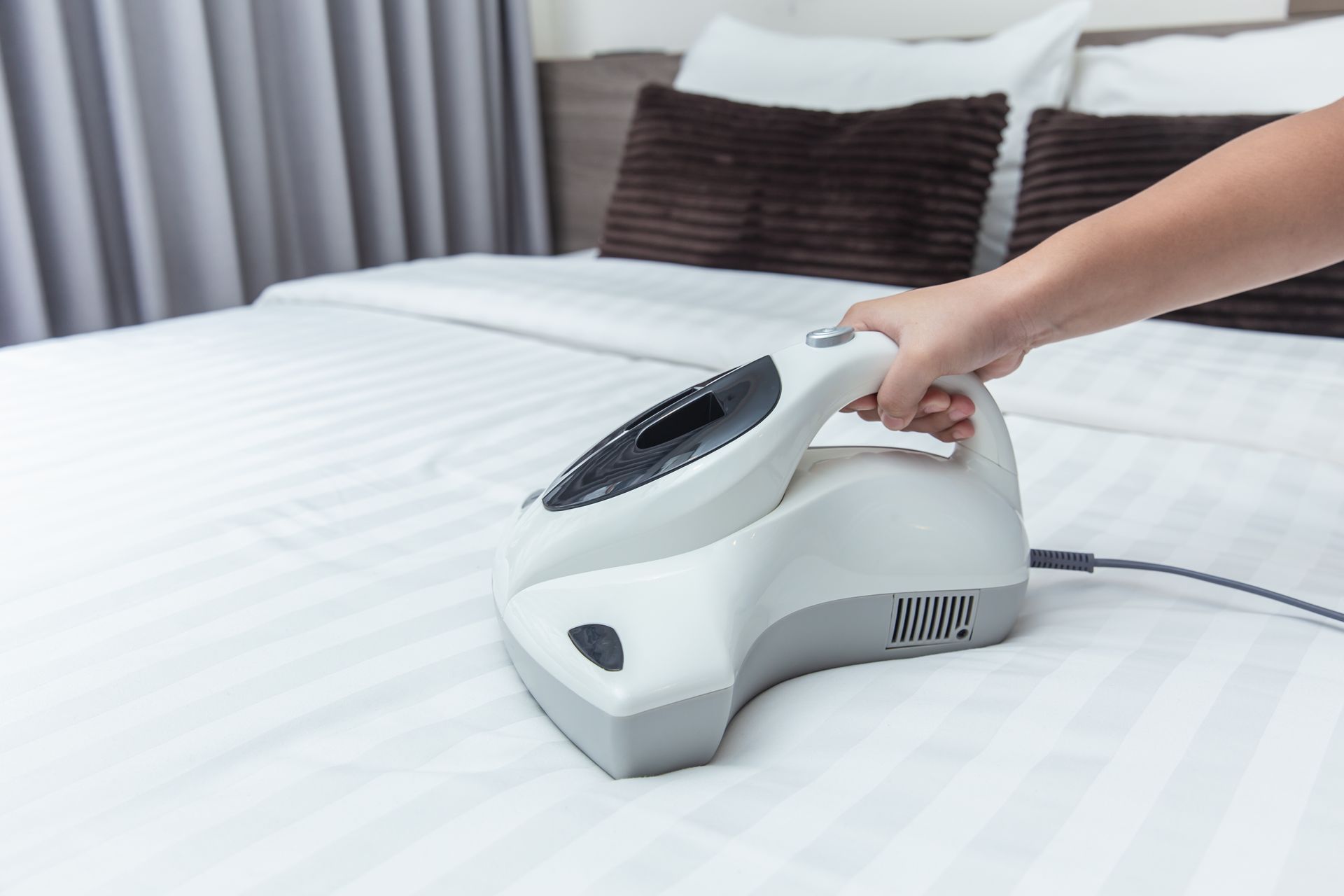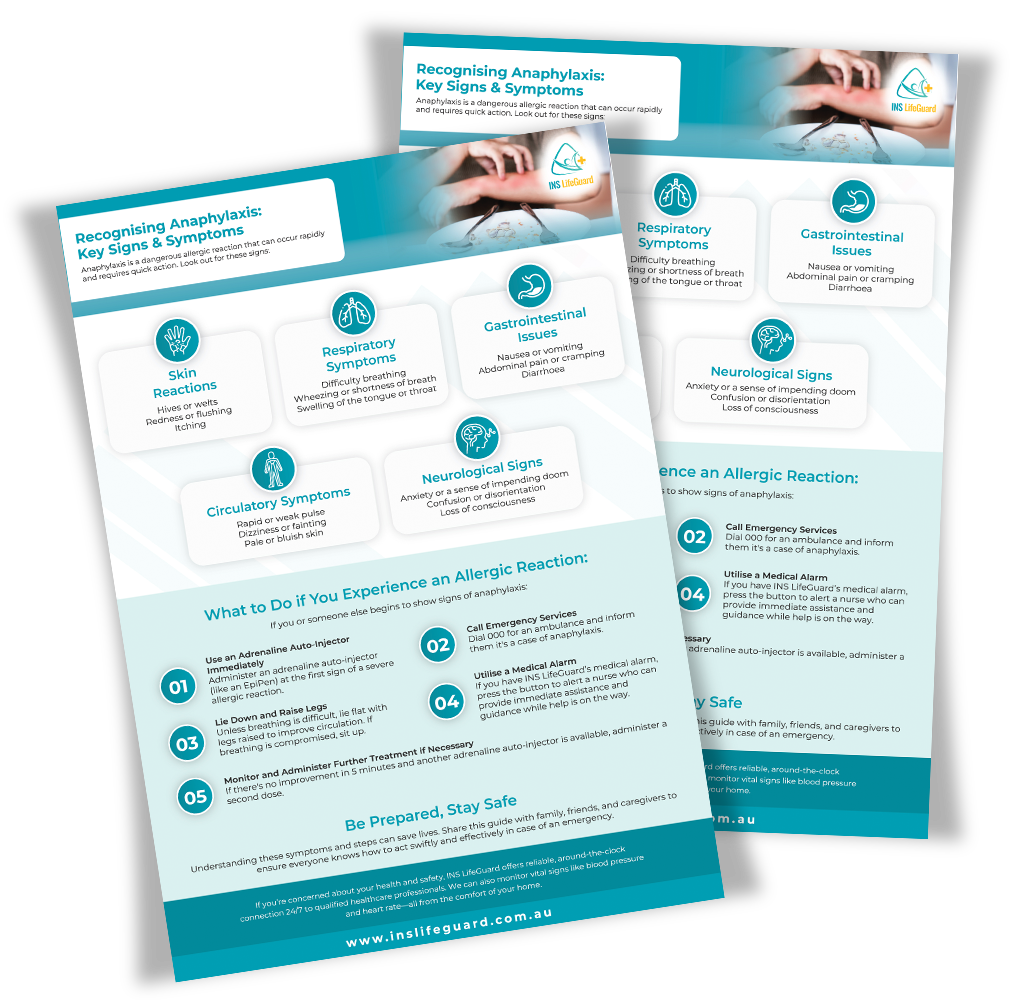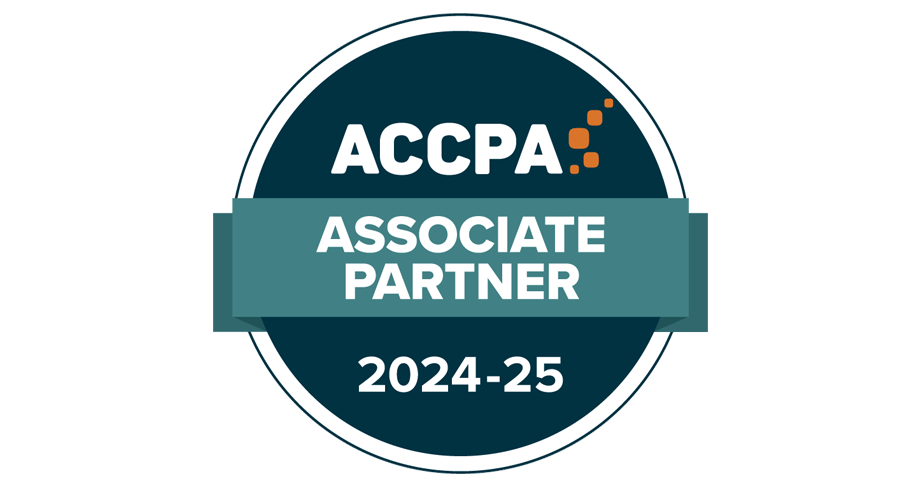INS LifeGuard
12 Potentially Life-Saving Tips for People With Severe Allergies

If there’s one thing that people with severe allergies should know or already know, it’s that constant vigilance and preparation are a must. Even the smallest oversight can lead to serious consequences, such as complications that could require emergency medical attention.
In 2021 alone, there were approximately 2,400 hospital admissions and around 20 deaths in Australia due to potentially life-threatening allergic reactions. These figures highlight the importance for people with severe allergies to understand how to manage allergies effectively and be prepared for unexpected allergic reactions.
Whether you or someone you love has severe allergies, the following tips can help you make sure that you're taking the necessary steps to stay safe and avoid allergic triggers.
1. Know Your Triggers
While everyone already probably knows this, it still needs to be mentioned. The first step in managing your condition is understanding what triggers your allergic reactions. Common allergens include foods like nuts, shellfish, and dairy, as well as environmental factors such as pollen, pet dander, dust mites, and insect stings.
Keep a Log
Document your symptoms and any potential exposures to allergens. Over time, this can help identify specific triggers.
Get Tested
Consider getting an allergy test from a healthcare professional to determine precisely what you are allergic to. Knowing your allergens can help you avoid them more effectively.
2. Read Labels Carefully
Reading labels is an absolutely important habit that people with severe allergies must practice. Food packaging can sometimes hide allergens in ingredient lists, so you should really be vigilant.
Look for Allergen Warnings
Many food labels in Australia are required to list common allergens. Look for bolded allergens such as “Contains: Milk, Eggs, Nuts.”
Know the Alternatives
Be aware of alternative names for allergens. For example, casein and whey are proteins found in milk, and they can be listed separately on ingredient labels.

3. Communicate Your Allergies
Make sure that the people around you are aware of your allergies, even if they’re just a casual acquaintance. This is especially important in social situations where food is present or in environments that could expose you to environmental allergens.
Wear a Medical Alert Bracelet
A medical alert bracelet can inform others of your condition if you’re unable to communicate during an allergic reaction.
Educate Your Friends and Family
Let your close contacts know about your allergies and what to do in case of an emergency.
4. Create an Allergy Action Plan
Having a comprehensive action plan for allergic reactions is very important, especially in emergencies. The Australasian Society of Clinical Immunology and Allergy (ASCIA) provides ASCIA Action Plans that are specifically made to guide individuals and carers during anaphylaxis and other severe allergic reactions.
Choose the Right Plan
There are three types of ASCIA Action Plans available for different needs: the ASCIA Action Plan for Anaphylaxis, the ASCIA Action Plan for Drug (Medication) Allergy, and the ASCIA Action Plan for Allergic Reactions. Select the plan that best suits your allergy profile.
Follow Clear, Step-by-Step Guidance
Each ASCIA Action Plan includes clear instructions on recognising symptoms, administering medications, and contacting emergency services. This structured approach is crucial in managing allergic reactions swiftly and effectively.
Ensure Accessibility and Awareness
Share your ASCIA Action Plan with everyone in your household, as well as caregivers and close friends. Make sure they know where the plan is kept and how to follow it. Remember, while ASCIA Action Plans do not expire, it's recommended to review them regularly with your doctor to ensure they remain up to date with your health needs.
Ensure Accessibility and Awareness
Make sure that you always carry your ASCIA Action Plan with you. You should also let your family, friends or carers know that you have a plan, so they know what to do if there’s an emergency. Remember, while ASCIA Action Plans do not expire, it is highly recommended to review them regularly with your doctor to ensure they remain up to date with your health needs.
5. Always Carry an Epinephrine Auto-Injector
Epinephrine is the first line of defence against severe allergic reactions. Having an epinephrine auto-injector (such as an EpiPen) on hand can save your life in case of anaphylaxis.
Learn How to Use It
Ensure that you and those close to you know how to use the auto-injector properly.
Check Expiry Dates
Regularly check the expiration date on your epinephrine auto-injector and replace it as needed.
6. Utilise Medical Alarms for Immediate Assistance
During a severe allergic reaction, quick access to medical help can be the difference between life and death. INS LifeGuard’s medical personal alarm systems provide an essential layer of security by offering immediate access to qualified nurses who can assist during sudden health crises. All you have to do is press a button. This can be particularly important for those who live alone or may not have immediate access to emergency services.
24/7 Access to Support
With a medical alarm from INS LifeGuard, you have round-the-clock access to qualified nurses who can quickly assess the situation and provide guidance or dispatch emergency services if necessary.
Peace of Mind
Knowing that help is just a button press away can provide peace of mind and a sense of security, especially for those who may experience anxiety about their allergies.
7. Be Cautious When Dining Out
Eating out can be especially challenging for those with severe allergies, but taking the right precautions can make the experience safer.
Inform the Restaurant Staff
Always inform the waitstaff and the kitchen about your allergies. They’d be happy to accommodate your dietary restrictions. Ask about ingredient lists and food preparation methods to avoid cross-contamination.
Choose Allergy-Friendly Restaurants
Some restaurants are known for being allergy-friendly and may have specific protocols in place to accommodate guests with food allergies. Allergy Life Australia has an interactive map of Friendly Food & Drink Venues across Australia.

8. Travel Prepared
Travelling with severe allergies requires extra preparation to ensure your safety in unfamiliar environments.
Pack an Allergy Kit
Include your epinephrine auto-injector, antihistamines, a copy of your allergy action plan, and any other medications you might need.
Research Local Emergency Services
Before travelling, research the availability of local medical services in your destination and how to contact them in case of an emergency. For travel within Australia, consider using a 24/7 personal alarm from INS LifeGuard. The emergency response team is the only one Australia staffed by nurses with access to your medical history, provides free medical advice and can triage calls in case of an emergency. With advanced care through the INS LifeGuardian® App, integration with the Apple Watch allows for tracking health metrics like heart rate and activity levels. This feature provides valuable insights and alerts for potential health issues that might otherwise go unnoticed.
9. Maintain a Clean Living Environment
Reducing allergens in your home can help prevent allergic reactions, especially for those with environmental allergies.
Use Allergen-Proof Covers
Place allergen-proof covers on mattresses and pillows to reduce exposure to dust mites.
Regular Cleaning
Vacuum frequently with a HEPA filter vacuum cleaner, and dust regularly to minimise allergens like pet dander and pollen.

10. Stay Informed and Educated
Stay updated on the latest allergy management strategies and treatments. This knowledge can empower you to take proactive steps in managing your allergies effectively.
Attend Allergy Education Programs
Participating in education programs or workshops can provide valuable information on managing allergies.
Follow Reputable Sources
Stay informed by following reliable medical sources or organisations dedicated to allergy awareness and education.
Allergy & Anaphylaxis Australia (A&AA) is a great example of a reputable source. They are Australia’s only national support organisation dedicated to raising awareness of allergic conditions in the community by providing evidence-based information, resources and services to support those living with allergic diseases.
11. Monitor Your Health Regularly
Regular check-ups with your healthcare provider are important to assess your allergy management plan and make any necessary adjustments.
Regular Allergy Tests
Consider getting periodic allergy tests to monitor any changes in your sensitivities.
Adjust Medications as Needed
Work with your healthcare provider to adjust your medications based on your current allergy status and any new triggers.
12. Educate Yourself on the Signs of Anaphylaxis
Recognising the signs of anaphylaxis early can be critical to preventing a life-threatening situation. Symptoms may include difficulty breathing, swelling of the face or throat, a rapid drop in blood pressure, and a rapid or weak pulse.
Know the Symptoms
Familiarise yourself with the symptoms of anaphylaxis and educate those around you as well.
Act Fast
If you or someone near you shows signs of anaphylaxis, use your epinephrine auto-injector immediately and seek emergency medical assistance.
Signs & Symptoms of Anaphylaxis
Be prepared for any situation by downloading our "Signs & Symptoms of Anaphylaxis" guide. Having a good understanding of the signs and symptoms of anaphylaxis can mean the difference between life and death. Anaphylaxis is a severe, life-threatening allergic reaction that can escalate quickly, requiring immediate medical attention. This free downloadable resource provides a comprehensive guide to recognising the early signs of anaphylaxis and knowing exactly what to do if it happens.

Conclusion
Severe allergies are manageable with constant awareness and preparation, allowing you to reduce the risk of life-threatening reactions and maintain control over your condition. From knowing your triggers and carrying an epinephrine auto-injector to using medical alarms for immediate assistance and maintaining a clean living environment, the tips discussed in this blog can surely help keep you safe. Remember, being proactive and prepared can make all the difference when dealing with severe allergies.
Stay informed, stay prepared, and stay safe.

About
INS LifeGuard is the only 24/7 nurse on-call personal and medical monitoring in Australia. We provide monitoring technology for both in the home and on the go and can also monitor other provider's equipment. Our services are suitable for anyone wanting support to stay independent such as the elderly, those with medical conditions and disabilities plus enhancing safety and security for lone workers.















